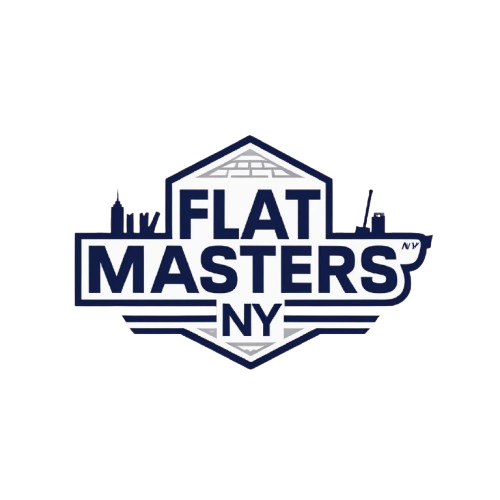How to Keep Birds Off Flat Roof: Professional Solutions
Bird problems on flat roofs in Queens can cost property owners anywhere from $300-$2,500 annually in cleanup and damage repairs. After twenty-three years installing and maintaining commercial flat roofs across Astoria, Long Island City, and Flushing, I've seen what pigeons, seagulls, and starlings can do to a perfectly good roof membrane.
The issue isn't just the mess - though trust me, cleaning bird droppings off a 5,000 square foot warehouse roof isn't anyone's idea of fun. Bird waste actually contains uric acid that eats through roofing materials over time. Last month we had to replace an entire section of EPDM membrane on a building in Elmhurst because years of pigeon colonies had literally corroded through the rubber.
Understanding Why Birds Love Your Flat Roof
Birds don't choose your roof randomly. Flat roofs provide everything they need: shelter from wind, protection from predators, and often standing water from poor drainage. The equipment on commercial roofs - HVAC units, vent stacks, parapet walls - creates perfect nesting spots. I've pulled shopping bags worth of nesting material from behind rooftop units during maintenance calls.
Seagulls are particularly problematic near the waterfront areas of Queens. They're aggressive, territorial, and can damage membrane surfaces with their claws. Pigeons prefer the interior areas and are prolific breeders - one pair can produce up to eight offspring per year.
Professional Bird Deterrent Systems
| Deterrent Method | Cost Range | Effectiveness | Durability |
|---|---|---|---|
| Bird Spikes | $2-4/linear foot | 85% | 8-12 years |
| Bird Netting | $1.50-3/sq ft | 95% | 5-8 years |
| Electric Shock Tracks | $8-15/linear foot | 90% | 10-15 years |
| Sonic Deterrents | $200-800/unit | 60% | 3-5 years |
| Wire Systems | $3-6/linear foot | 80% | 6-10 years |
Bird Spike Installation on Flat Roofs
Stainless steel bird spikes remain the most cost-effective solution for most commercial properties. We install these along parapet walls, HVAC equipment edges, and pipe penetrations. The key is proper spacing - too far apart and birds just land between them.
Installation requires careful attention to the roof membrane. I've seen contractors puncture TPO and EPDM trying to secure spikes with screws. We use specialized adhesives rated for commercial roofing when possible, or we install backing plates to distribute load and prevent membrane damage.
Quality matters here. The cheap plastic spikes from big box stores last maybe two winters in Queens before the UV and freeze-thaw cycles destroy them. We source our spikes from Bird-B-Gone and similar commercial suppliers. They cost more upfront but last eight to twelve years.
Bird Netting Solutions for Large Areas
For courtyards, loading docks, and large open roof areas, professionally installed bird netting provides near-complete protection. The netting we use is UV-stabilized polyethylene, nearly invisible from ground level, and designed to withstand Queens weather patterns.
Proper installation requires structural analysis. The netting creates wind load that existing roof equipment might not handle. We work with structural engineers on installations over 1,000 square feet to ensure proper support.
The biggest installation challenge is maintaining roof access for maintenance while keeping the netting secure. We design removable sections around HVAC equipment and create access hatches where needed.
Electric Shock Track Systems
Electric bird deterrent systems deliver a mild shock that trains birds to avoid treated areas. The shock won't harm the birds but creates a strong avoidance response. These systems work exceptionally well on ledges, signs, and equipment where other deterrents might not fit.
Installation requires weatherproof electrical connections and proper grounding. The systems operate on low voltage but still need GFCI protection and proper conduit routing. We typically tie into existing rooftop electrical systems where codes permit.
Maintenance involves keeping the tracks clean - bird droppings, leaves, and urban debris can short the system. We recommend quarterly cleaning and annual electrical inspections.
Addressing Existing Bird Problems
Professional Bird Removal Process
- ✓ Health department notification (required in NYC for large infestations)
- ✓ Safe nest removal during permitted seasons
- ✓ Membrane inspection for acid damage
- ✓ Professional waste cleanup and sanitization
- ✓ Drain clearing and flow restoration
- ✓ Deterrent system installation
- ✓ Ongoing maintenance plan development
You can't just install deterrents over existing bird colonies and expect them to work. Birds are creatures of habit - they'll fight to keep established territories. Professional removal requires timing and patience.
We start with humane nest removal during appropriate seasons. Federal law protects most bird species during nesting periods, so timing matters. The cleanup process involves commercial-grade sanitizers and proper disposal of contaminated materials. Bird waste can carry over 60 diseases, so proper PPE and cleanup procedures aren't optional.
DIY vs Professional Installation
Property managers often ask about DIY bird control. Simple spike installations on small areas might work for handy building owners, but flat roof work requires fall protection and proper safety equipment. More importantly, improper installation can void your roof warranty.
I've repaired too many roofs damaged by well-meaning building owners who drilled through membranes or used inappropriate adhesives. The cost of professional installation - typically $1,200-3,500 for most commercial buildings - often costs less than fixing DIY mistakes.
Commercial properties also need to consider liability. If your bird control system fails and causes injury or property damage, insurance companies will ask whether it was professionally installed and maintained.
Maintenance and Long-term Success
Bird deterrent systems require ongoing maintenance to remain effective. Spikes collect debris that birds can use as nesting material. Netting develops tears from weather and impacts. Electric systems need cleaning and electrical inspections.
We recommend quarterly inspections during our regular roof maintenance visits. This catches problems early and keeps deterrent systems working properly. The cost of preventive maintenance - usually $150-300 per visit - prevents the much higher cost of dealing with re-established bird colonies.
Success also depends on eliminating food sources and water. Standing water on flat roofs attracts birds, so proper drainage maintenance is crucial. Nearby restaurants and food processing facilities create challenging situations that might require multiple deterrent strategies.
Legal Considerations in Queens
New York City has specific regulations about bird control on commercial properties. Some species receive special protection, and certain deterrent methods require permits. Property owners are responsible for maintaining bird control systems that don't create hazards for neighboring properties.
Historic districts in Queens may have restrictions on visible deterrent systems. We work with building departments and landmark commissions to develop compliant solutions that protect both birds and buildings.
Cost-Effective Solutions for Different Building Types
Small commercial buildings under 3,000 square feet typically see good results from strategic spike placement for $800-1,500 installed. Larger warehouses and manufacturing facilities might need comprehensive netting systems costing $5,000-15,000 depending on complexity.
Multi-story buildings present unique challenges because birds use lower roofs to access upper levels. We often recommend phased installations starting with problem areas and expanding based on bird behavior patterns.
The most cost-effective approach combines multiple deterrent types strategically placed based on species behavior and building design. A good system pays for itself within two years through reduced cleanup costs and prevented damage.
At Flat Masters NY, we've developed bird control solutions for over 300 commercial properties throughout Queens. Each situation requires assessment of bird species, building design, and budget constraints. Contact us at (917) 994-7618 for a comprehensive bird control evaluation. Our solutions come with written warranties and ongoing maintenance support to keep your roof bird-free year-round.
Don't let bird problems damage your investment. Professional bird control protects your roof, reduces maintenance costs, and maintains a professional appearance for your property.

